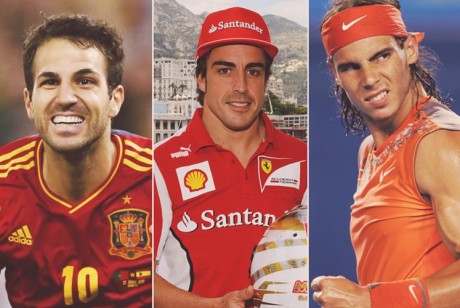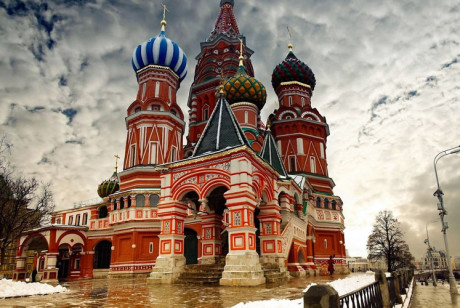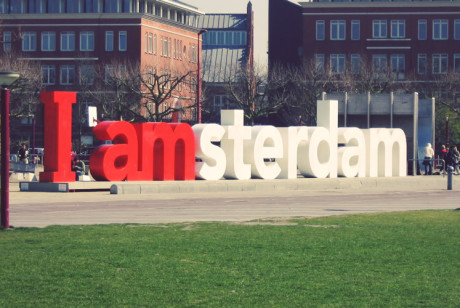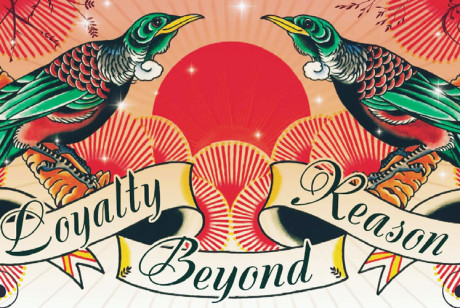2010 – Near Future Visions
Saturday, 28 September 2002 - Cambridge, UK
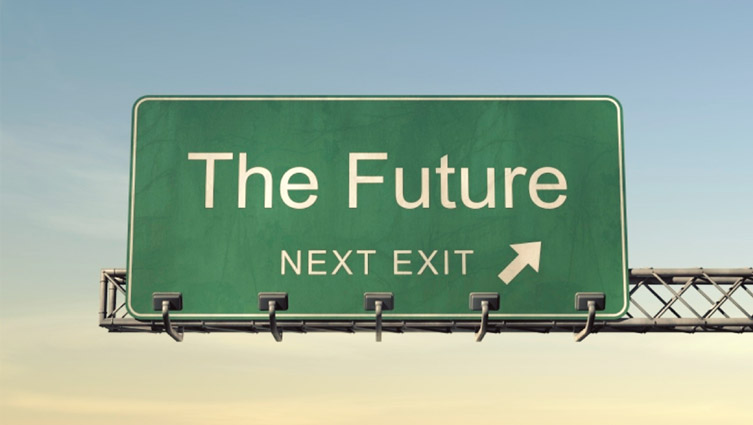
Presentation Summary
An address to the Cambridge Alumni in Management / Judge Business School. The intersection between the public and private sphere is game-breaking territory. The optimistic power of ideas can change the world for the better. Through opportunities, business has the power to deliver self-esteem. We need to develop attitude, use the market, negotiate and invite love back into business.
Thanks very much. I’m delighted to be back at Cambridge.
Cambridge is a high peak on the planet’s intellectual landscape – an inspiring vantage point for sharing some near future vision.
Just a few years back – and for as long as I can remember – year 2000 lay quiet in our minds as a kind of vanishing point to the future.
Already we’re three years over the horizon. Over the last 33 months, we’ve seen the good, the bad and – a year ago – the seriously ugly. Around the globe, lives have been buffeted by startling events, new complexities and – for many – rapid change.
The future is coming at us fast. Wherever you gaze out from in the world, year 2010 stands as the next milestone of achievement and possibility. It’s emerging as an evocative threshold for individuals, institutions, corporations and governments. Conceptually, I see the next 7 years as our near-future work zone.
The intersection between the public and private sphere is game-breaking territory. I’m going to step back from there and provide some go-forward perspective for today’s exploration of the public-private edge.
This morning I’m going to tackle the big one – the Jonah Lomu of strategic questions for a multinational CEO – the future. Quite a challenge…
I am not a prophet, seer, psychic, clairvoyant, mystic or oracle. I don’t lose much sleep over the predictions of futurists. What I am – to the core of my being – is an optimist.
I believe in One philosophy One team; One dream. I believe the power of ideas can change the world for the better. And I live and breathe the spirit that fires Saatchi & Saatchi globally – Nothing is Impossible.
Over five years that attitude has taken Saatchi & Saatchi from the fourth most creative global network in the world to number one this year by a points margin double our nearest competitor.
Over the same period, we’ve grown revenues faster than the market, margins from 6 percent to 13 percent and increased earnings per share by 30 percent a year. We listed at one pound and sold for five.
And our London agency is leading the way. Last June at Cannes, Saatchi & Saatchi London was judged most creative agency in the world for 2002.
Our London agency has vision – and vision is all-powerful… for the near-future integral. Why? Because we can’t see the future – if we could, disgusting things like child abuse might not happen. What we can do is envision the future, prepare for it, shape it, and – if we believe nothing is impossible – reconfigure it.
Marshal McLuhan got it right. People look at the present through a rearview mirror. They march backwards into the future. Obsessing, lamenting, blaming, prevaricating. To solve problems and achieve happiness, you need the right attitude.
The rearview mirror belongs to historic inquiry. It serves as a marker. History gives us critical perspective. It allows us to take a compass-bearing to find out where we’ve come from, where we are and where we need to get to.
State of the Play
Looking back, the twentieth century was the best and worst century ever. A time of unprecedented wealth-creation and catastrophic events. It was – as Cambridge Fellow Eric Hobsbawm epically chronicled it – an Age of Extremes.
The grand dichotomy of last century was that more people were killed and more people became better off – with greater hopes and opportunities – than any century before.
I don’t pore over the debates or numbers games that rage between these extremes. The facts flowing out of the paradox of last century, though, do tell us our world is in trouble.
Over a billion people still live in poverty. This is an urgent, real issue. Poverty anchors and cross fertilises all the world’s key afflictions – terrorism, war, crime, AIDs, malaria, food and water shortage, ecological threats, illiteracy and so on.
The positioning of poverty as a cornerstone threat is established. Poverty is triggering civil war, seeding terrorism, fueling mass migration, decreasing sanitation, and threatening ecology and biodiversity. Poverty is bad.
On the fix-it side, we face the gulf between the walk and the talk – the hypocrisy, posturing and blinkered agendas of a basket of tunnel-vision governments and corporations around the world… from both the “North” and the “South”.
The millennium report card of countries reads “must do better”. The list is in plain view… backtracking on free trade and development aid; debt-relief inertia; suppression of democracy and basic freedoms; subjugation of women and children; human rights abuses; weapons build up, nepotism, cronyism, jingoism and the rest.
You’ve read the reports and articles. You know the split personalities and double deals. If countries were people, half of them would be committed.
The millennium report card of companies reads “pull your finger out.” Enron, Worldcom and friends have downgraded all of us from a ‘C+’ to a ‘D-‘…thanks for that guys. Add to this the pitter patter of unconscionable ecological and social practices. It’s a real challenging time to be in business. It’s a turkey-shoot of a time to be a global CEO.
For business the reality stands… corruption, exploitation and bad governance are a festering sore on the face of commerce.
Markets and Wealth
How to reconcile all this contradiction and complexity? How do we make the global house more livable?
The vision starts with accepting that the market system has produced gains no other system match. Radical alternatives have crashed and burned. The few that remain are miserable experiences. There is no plausible alternative to the efficiency of the market economy. That is not market fundamentalism or universalism. It is present reality.
The vision continues with believing that the self-interest that powers markets can be made to work for not against us. We know the market does not deliver equal distribution of resources. The competitive logic in capitalism – and people – prevents this.
What the market can do is deliver equal opportunity. Which means it has the potential to deal to the global serial killer – poverty.
We go from there – warts and all.
A quarter of century ago – after Mao’s disastrous cultural revolution – Deng Xiaoping lit up an unfiltered Camel, spat, and went from there. He removed guaranteed lifetime employment in state enterprises. He told the people of China “that to get rich is glorious” and handed them ambition. In doing so, he lifted 170 million peasants out of extreme poverty.
Reaching a high tide of wealth does not guarantee happiness. It’s the boat ride up – the ambition, challenge, exertion and adventure of building wealth, especially early on. That was the wild current for me growing up in Lancaster with no money, few options, surrounded by petty violence and poverty. Opportunity and ambition – with love – made my life.
Our near-future challenge is to make sure the tide rises and everyone’s on it – to maximise growth and spread it widely, responsibly and sustainably.
Demonising a system or person for the bad side of its personality is poor attitude. If you believe in something or someone, the key is to promote the positives and suppress the negatives. That’s what I do mentoring at-risk Auckland teenagers through the Turn Your Life Around Trust in New Zealand. That’s how I feel about economic globalisation.
Role of Business
I don’t care about the cynics. My vision concentrates in one, single heart-driven proposition.
It is this:
The role of business is to make the world a better place for everyone – creating self-esteem, wealth, prosperity, jobs and choices.
I believe business can do this. And my conviction is that if business does not champion this cause, the human condition will not improve. Through opportunities, business has the power to hand self-esteem and joy back to the billion in misery.
Ask Costa Rica. They have Intel inside. Venezuela bubbled up on Coca-Cola. Around the world our client Toyota and others like Sony, Procter & Gamble, and BP have put a spring in the step and a light in the heart of thousands.
Motivate business and it can move like lightning. It can hurdle national borders. It can turn ideals into reality. Government ideals, by comparison, get frisk searched and turned back at the border by the bogeyman of peace and prosperity – national interest. Governments debate. Business just does it.
Business powers development. It is the engine room of human progress. Without economic development, social equity and ecological balance are a quixotic dream. Business has to stand up. We can touch lives. We must improve them.
The good news is that the tectonic plates of social need and profit incentive are grinding towards each other.
At ATKearney’s CEO retreat for the Global Business Policy Council in Berlin last June, the consensus was clear. Terrorists and rogue states feed off the free flow of goods, people and capital that has driven global integration.
If business wants a secure commercial environment it has to take responsibility for globalisation and put its hat in the security ring – both by not contributing to the problem, through counter-productive trade and investment, and by actively contributing to solutions – through support for conflict resolution.
The insecure environment is the galvanizer. Public perception is the accelerator. Enron, Worldcom and friends have put a super premium on responsible corporate practice – right across the spectrum of economic, environmental and social engagement.
In year 2002, the engine of efficiency is squaring up to the imperative for equity.
The convergence of public and private good is a maturity point in the market evolution’s from transactions to relationships. It’s forcing a breakout from commodification – the endgame that’s squeezing the life out of brands and business.
Commodification is all around us now… the erosion of distinctions, the rapid imitation of innovation and ever higher standards of performance and quality.
Commodification has reduced reputation, respect and trust to a table stake for participation in business – to what Saatchi & Saatchi now calls a Trustmark. I felt this pressure when I came to Saatchi & Saatchi five years ago. To get past it, I stepped out from the world of business and distilled a simple everyday truth. It has taken Saatchi & Saatchi to the top of the world.
That truth is this:
The most powerful relationships run on deep emotional connections – and the deepest connection of all is love.
To prosper going forward, business is going to have to engage this truth. It’s going to have to connect not just with mind – but also with heart.
Emotion is an unlimited resource. What lights me up is that the rewards for connecting with people’s hearts are now forcing businesses to reconcile the private incentive for profit with the social imperative for fairness.
When I first said the “L” word in public three years ago, everyone squirmed. Now serious business people say Love without blushing. And mean it. In business – as in life – love changes everything and brings premium rewards. Only love can transform a business relationship from a valued connection to a passionate commitment.
At Saatchi & Saatchi we call these deep emotional relationships Lovemarks – life-long affairs that bind a company, its people, its brand and its customers.
Lovemarks rule Saatchi & Saatchi’s world. They could change yours…
- Lovemarks evolve from a deep understanding of relationships.
- Lovemarks belong to the people who love them.
- Lovemarks inspire loyalty beyond reason.
- Lovemarks are the ultimate premium profit generator…
And this millennium:
- Lovemarks are the deal brokers between private interest and public good
Peak Performance
Love is the deep current that makes it possible to make the world a better place. Is there a change model to galvanise efforts around the globe?
You bet there is.
It starts with attitude… because while the threat scenario we face is serious, it’s still incremental. It is not – as the pessimists and doomsdayers like to trumpet – apocalyptic.
The only thing that can nail us is clinical depression – if we lose the will to survive. I believe we can head off any threat whatsoever. Even if it means terraforming Mars, rebuilding the ozone layer or pulverising asteroids.
Back on earth, the central threat is poverty. The World Bank tells us two generations – 50 years – is enough to eliminate all poverty and move to a more sustainable development path. I tell you we can do it faster – with one word > inspiration.
Inspiration powers a long term global research model I worked on with academic colleagues in New Zealand. The model is called Peak Performance.
The research resulted in our book “Peak Performance: Inspirational Business Lessons from the World’s Top Sports Organisations”, first published in 2000.
In tracking the secret to enduring business success, we discovered it’s not just about management and doing things right. And it’s not just about leadership and doing the right things. We found it’s all about inspiration. Inspiration is the spice that unleashes the human spirit.
- Inspiration awakens people to their potential. To what they can be and what they can do.
- Inspiration is contagious. Those who inspire are also inspired and can move up to greater performance peaks themselves.
- Inspiration arouses people’s commitment to exceed their personal best.
Personal best is the call to action of the Inspirational Player. These are the beautiful minds and great hearts who step up to change the world – from cultural translators in Morocco through to hydrogen scientists in Massachusetts.
The radiance of inspiration is that it cuts across every field of endeavor. While the pundits are debating degrees of global inequality and warming, inspirational players are out there turning local attitude into global action.
Inspirational players can come from anywhere and everywhere. You’ll have your own selection. Many of us will share:
- Martin Luther King
- JFK
- Mohandas Ghandi
- Deng Xiaoping
- Winston Churchill
And a few personal favorites…
- Steve Jobs of Apple
- Sam Walton of Wal-mart
- Roberto Goizuetta of Coca-cola
- AG Lafley of P&G
- And the Boss and the Greatest… Bruce and Ali!!
Peak Performance starts with an Inspirational Dream – the heart of great endeavours. The theory of the model explains how Inspirational Players create an organisation that continuously exceeds its best in the pursuit of its purpose.
Peak performance was designed as an organisational change model. It can be a global change model. It took Saatchi & Saatchi to No.1 in five years and – through inspirational player A.G Lafley – turned around our biggest client Procter & Gamble in two. Peak Performance unleashes the human spirit.
Power of Ideas
Peak Performance is a model for change. Now the game breaker – the Power of Ideas. Saatchi & Saatchi is in the ideas business. We are an ideas company. Our inspirational dream is “To be revered as the hothouse for world-changing creative ideas that transform our client’s businesses, brands and reputations.”
Over the last thirty years we’ve used simple ideas to produce some of the most effective and memorable ideas ever seen in social advertising. The work has confronted a plethora of issues from child abuse, road safety and sexually transmitted diseases through to war, racism, drugs, torture, contraception, censorship, and the environment.
Cambridge, of course, has an enviable record on world-changing ideas. Its formidable reputation was built on inspirational players like Newton, Darwin, Rutherford, Crick and Watson.
The creative advances we’ve witnessed over the last 50 years have been astonishing. We’re in the Age of The Idea.
Ideas will drive the vision to make the world a better place. They are the genesis of innovation and technology. Used responsibly, their power delivers the potential to feed the poor, reduce conflict and clean up the planet.
Great ideas come from everywhere, but many of them turn up on the edge where the control of the center is weakest and the energy of the Local most vital. Kurt Vonnegut got it right: “I want to stay as close to the edge as I can without going over. Out on the edge you see all kinds of things you can’t see from the center.” The edge is where the action is. The territory of innovation. The spawning ground of hybrids.
Let the skeptics blow. International companies can make the world a better place with simple edge-driven ideas that benefit both the poor and the environment. Ideas like off-grid village-owned micropower plants that run on wind or sunlight.
Business and ideas are one. Andy Warhol was onto it: Being good in business, he said, is the most fascinating kind of art.
Our global client Toyota is building a sustainable future around ideas. Its 2010 vision – “innovation into future” – seeks to make the world a better place. They aim to become a leader of global regeneration using outstanding environmental technologies.
Procter & Gamble is also on the love trail. They’re purifying water and coming up with innovative detergents that require less water, heat and packaging.
Here’s five ideas for our near-future:
1: Unleash Women.
We have to get more women into international business. We have to unleash their potential. To smash the glass ceilings and dismantle the old boy networks. Men wage war. Women seek peace. They understand emotion. They nurture. They network and communicate better. They’re the experts at personal connections – the ones that count. And they cultivate love.
I’m telling people everywhere we’re in the Age of Inclusion. That claim is predicated on unshackling and empowering women everywhere. Only women can hold us together. Women can wrap the world in love.
2: Save Africa.
Africa is our cradle. When I hear people say lets write Africa off I get angry. We’re in this together. It’s all or none. Failed States, war, poverty and AIDs are a boomerang scenario. Twenty million AIDs victims. Forty million infected. Ignore them and it’s Billy Joel territory… We all go down together.
Affordable antivirals is a world-changing issue – an issue of conscience for the drug barons and the WTO. Then there’s the stigma of HIV/AIDs. That’s where Saatchi & Saatchi is helping. That’s right – we’ve got ideas for Africa!
This year we got in behind the Red Cross/Red Crescent with a world-changing idea – “The truth About AIDS. Pass it on” global campaign. It aims to reduce HIV/AIDS related stigma and discrimination, to pass on the truth about HIV/AIDS and warn against the dangers of stigmatising those who are infected, or their families. Already the concept has been adopted by over 80 National Societies worldwide.
3: Use the market to protect the environment.
Markets can protect not destroy the environment. The pull of markets and rights in environmental goods walks all over the push of command and control. America’s $4-billion-a year sulphur dioxide cap-and-trade system set up in 1990 is an astonishing marker of possibility.
Get the values of environmental goods right and the invisible green hand can weave its magic. Allowance and offset markets can be powerful forces for good. It’s the usual story. As governments debate, markets move. Fantastic to see the lure of love and competitive advantage turning green markets into reality.
4: Unlock the secrets of Deep Time.
Antarctica is the forgotten continent – the far side of my New Zealand edge. It’s a Lovemark waiting to happen. Nowhere on earth are past, present and future brought together more dramatically than in Antarctica’s deep ice structures.
Antarctica was once a place of semi-tropical forests and dinosaurs. I’m convinced hidden paths to a better future lie hidden in the ancient deep. Who knows? Perhaps the key to off-world human colonisation lies buried there.
Antarctica is a health barometer for the global environment. The last unspoiled continent is a world to explore and a realm to protect. Last February, Princess Anne and I flew down to see how we could help – 2002 being the centenary of Scott and Shackleton’s inspiring Discovery expedition. A cool woman. A bloody cool place!
Saatchi & Saatchi is standing guard over Antarctica. With the power of ideas we’re assisting the New Zealand Antarctic Heritage Trust with efforts and initiatives to raise the millions needed to conserve the heritage.
5: Get children to negotiate peace processes. Why the hell not? The Palestine and Kashmir disputes are intractable. Thousands are dead. No let up on the horizon. Grown-ups have had their shot. Let’s hand it over to the future – kids.
Nick Negroponte reckons we should give kids in cross-border disputes computers and get them to negotiate across the fire-zone using internet wi-fi. I like it!
Finally, three calls to action:
- Become an inspirational player. Commit yourselves to inspire others. And just as importantly, open up so others can inspire you. Inspiration is the energy of change. Plug into it. Become a force for good.
- Make the world a better place. Find a way to light up a path to a better future for all. Philosopher Dan Dennett said the secret of happiness is to devote yourself to something bigger than you are. How about the future?
- Invite love into business. Get used to it. Emotion is the future of business. Loosen the stiff upper lip. Get yourself some emotional broadband.
Once you accept the power of Love, a whole heap of stuff drops neatly into place – or right out of the picture altogether. Engage the world’s inspirational dream. Join the project. Lovemark our world.



